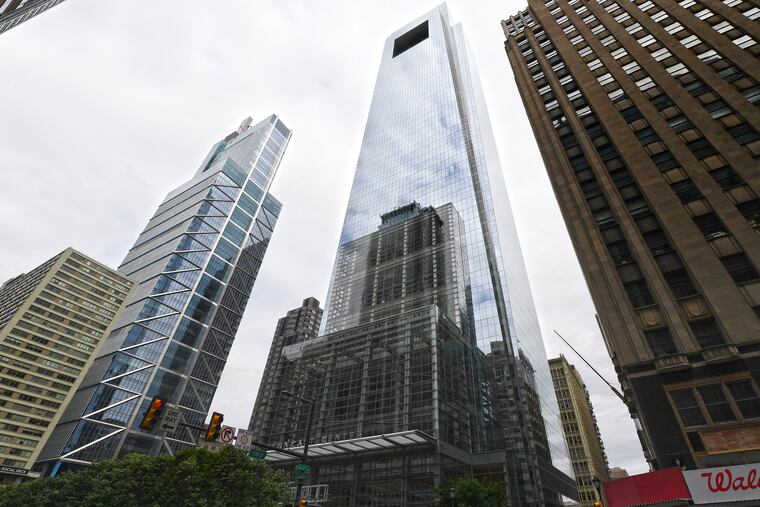Trump disses Comcast in a tweet, after rivals call for probe of its 2011 NBC merger
The American Cable Association calls Comcast 'a much greater threat' than AT&T-Time Warner, and Trump jumps in to add more criticisms.

Comcast, the nation's second-biggest cable TV provider, poses "a much greater threat to competition" than AT&T's recent merger with Time Warner — and the Justice Department should open a formal investigation, according to a group of small and independent cable companies.
President Trump also tweeted about the request later Monday, saying the American Cable Association "has big problems with Comcast."
"They say that Comcast routinely violates Antitrust Laws," the president wrote.
The request to the Justice Department by Comcast's rivals adds renewed pressure on the agency to revisit Comcast's 2011 merger with NBC, a deal that critics said opened up numerous opportunities for anticompetitive misconduct.
For years, a number of government restrictions attached to the deal had limited Comcast's ability to harm consumers, the letter by the American Cable Association said. But those restrictions expired over the summer, the group said, opening the door to questionable business tactics such as withholding NBC's television programming from competing cable providers.
"Without any conditions, Comcast-NBCU can act with impunity, and DOJ should expect this to happen," ACA wrote in the letter, which was dated Nov. 6 and released on Monday. "We have heard from ACA members that they fear that Comcast-NBCU may restrict, if it is not already restricting, their ability to access Hulu."
Comcast's shares were down 17 cents, less than half a percent, as of 2 p.m. Monday.
Comcast is a part owner of Hulu, along with Disney and 21st Century Fox.
Comcast on Monday called the letter an "inappropriate attempt to gain leverage in the commercial marketplace."
"The video programming and distribution markets are incredibly competitive," the company said in a statement. "New programmers and distribution platforms are offering consumers increasing choices on what and where to watch. At Comcast NBCUniversal, we are competing in this dynamic environment the way we always have — by continuing to innovate and conducting our business in compliance with antitrust laws and other legal requirements."
The Justice Department did not immediately respond to a request for comment. But the law enforcement agency warned Comcast in a letter this summer that it will continue to watch the company's behavior closely now that the merger restrictions have expired.
The deliberate decision to put Comcast on notice is unusual, and reflects the agency's own concerns about possible antitrust violations, said Gene Kimmelman, a former Justice Department antitrust official who now leads the consumer advocacy organization Public Knowledge.
"The fact they said they're watching closely is more than they say when other consent decrees expire," said Kimmelman.
The Justice Department's scrutiny of Comcast comes as regulators seek to appeal their unsuccessful lawsuit to block AT&T's merger with Time Warner, which has now been renamed WarnerMedia. In that case, the government expressed similar concerns that the combined company could withhold certain channels such as CNN or TNT from other TV providers whose customers need the content.
This month, another WarnerMedia property, HBO, became embroiled in a fight with Dish Network that has resulted in hit shows such as Game of Thrones being yanked off the air for 2.5 million customers.
Critics of the AT&T-Time Warner deal have tried to claim that the HBO blackout reflects the very concerns put forward by the Justice Department at trial — even though regulators did not predict that AT&T would seek to withhold HBO from other TV providers. Meanwhile, HBO's defenders say the standoff with Dish Network is the result of a contract dispute that has nothing to do with AT&T or the merger, though the blackout is the first in HBO history.